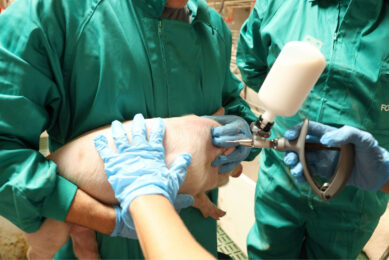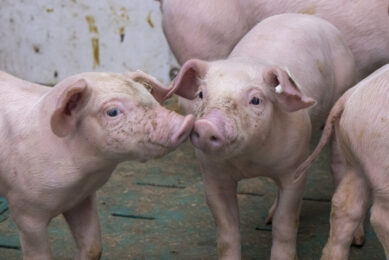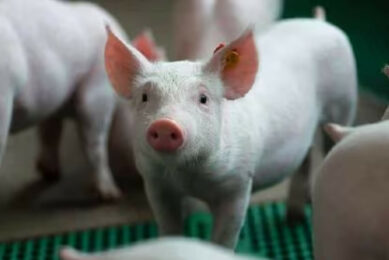Mexico resumes pork exports as US declares Mexico CSF free

Pork producers in all states of Mexico have been allowed to export pork and pork products into the United States. The US Department of Agriculture recognised Mexico mid-January as free of Classical Swine Fever (CSF).
The decision means that 49 pig slaughter and processing plants throughout Mexico are now permitted to export across the northern border. Up until now, only 9 states of Mexico were allowed to export pork and pork products to the USA. In 2017, the plants in those authorised states jointly exported 16,310 tonnes of pork and pork products to the United States.
Opening of borders for pork and pork products
The opening of the borders for pork and pork products from all states in Mexico is being credited to the hard negotiating work of the Mexican agriculture ministry (Sagarpa).

Read more about CSF and other health issues in the
In a press release, Sagarpa stated that Mexico is the world’s number 15-largest swine producer, with an average of 1.3 million tonnes of pork produced annually, worth just over US$ 3 billion. Mexico would be home to 16.7 million head of pigs and has been exporting to 8 countries so far, including Japan and South Korea.
Approval by United States Department of Agriculture
In the USA, the final thumbs-up was given mid-January by the United States Department of Agriculture’s (USDA) Animal and Plant Health Inspection Service (APHIS). In a press release, the service explained how, at the request of Mexico’s government, APHIS completed a thorough review, which included updating its initial risk assessment in 2016 following a 2015 site visit.
Using this information, APHIS determined that the risk of introducing CSF into the USA through imports of live swine, swine genetics, pork and pork products is very low.
The regulations require pork or pork products be accompanied by a certificate issued by a Mexican government veterinary officer. APHIS remarked that it must still consider other animal health concerns related to the import of live swine and swine genetics.
CSF history in Northern America
CSF was eradicated from the United States in the late 1970s after a long effort from the industry, state and federal government. The last known case of the outbreak in Mexico was in November 2005 – and in August 2012, Mexico declared itself free from CSF. The World Organization for Animal Health (OIE) already recognised Mexico as free of CSF in May 2015.
The opening of the US market is a long-standing wish of Mexico’s pig industry. For the first time in late 2007, Mexico requested market access to the United States for pork from the 8 states in its central region but later amended that request to include all Mexican states. APHIS at that time conducted multiple reviews and determined Mexico’s control programme for CSF was not sufficient to classify the country as negligible risk for the disease. A US grant, however, helped Mexican officials to receive training in foreign animal disease diagnostics at USDA’s Plum Island Animal Disease Center.
Response from the NPPC
In a press release by the US National Pork Producers Council (NPPC), its president Ken Maschhoff said, “The US pork industry is a strong supporter of free trade and of using epidemiological science and risk analyses to determine if trade can be safely conducted between countries. Mexico in 2017 was our No. 2 export market, so maintaining our good relationship with that country by ensuring fair and reciprocal trade is paramount for our producers.”











